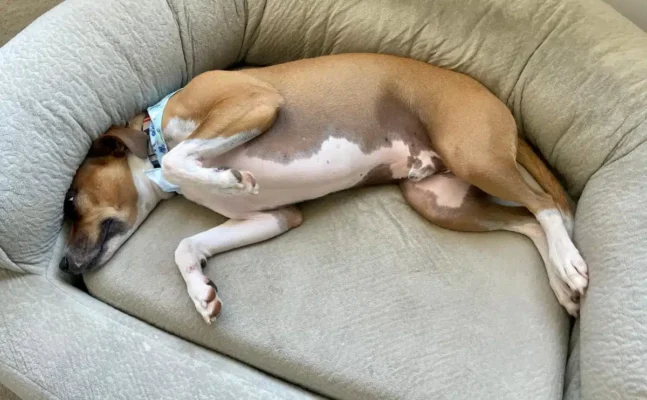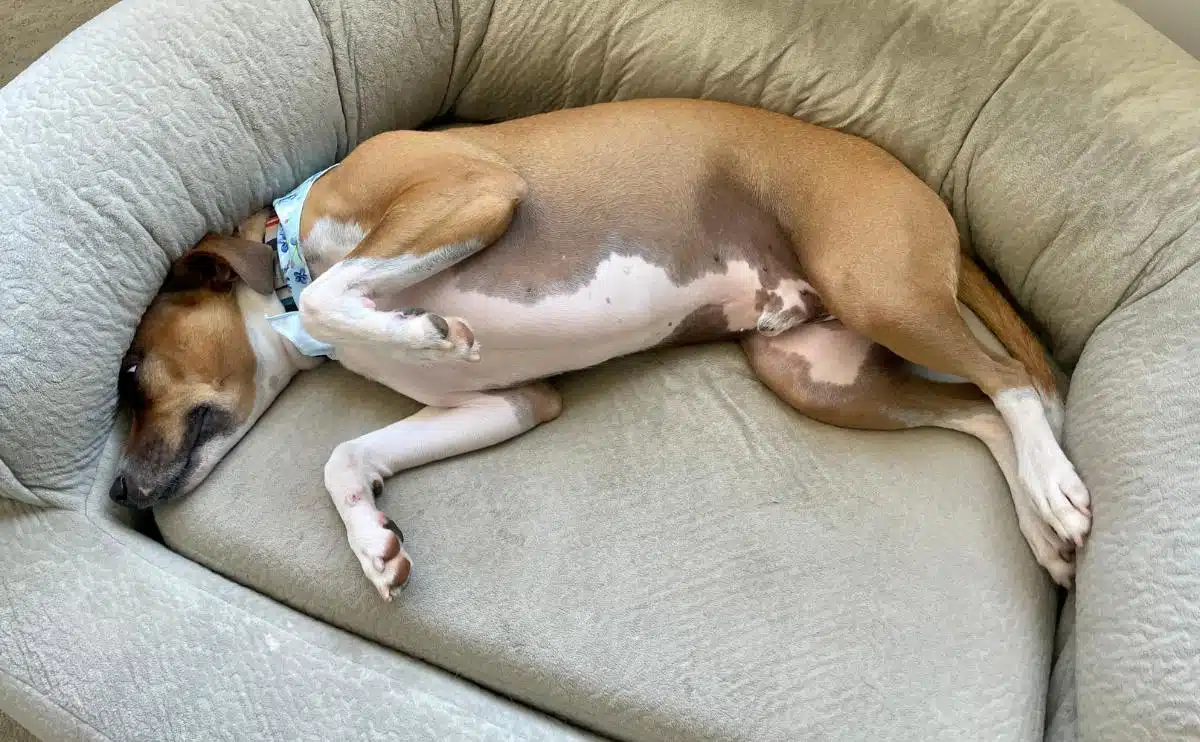The amount of sleep a dog needs varies depending on several factors, such as age, breed, activity level, and health. However, on average, most dogs sleep between 12 and 14 hours per day. This can be broken down into about:
- 75% of sleep occurring at night
- 25% of sleep occurring during naps throughout the day
Here’s a more detailed breakdown of sleep needs based on different factors:
Age:
- Puppies (under 1 year old): Puppies need significantly more sleep than adult dogs, often 18 to 20 hours per day. This is because they are growing rapidly and their brains are developing.
- Adult dogs (1 to 7 years old): Adult dogs typically need 12 to 14 hours of sleep per day.
- Senior dogs (over 7 years old): Senior dogs may sleep more than younger adults, up to 16 to 18 hours per day. This is because they may have less energy and may be experiencing health problems that make them feel tired.
Breed:
- Larger breeds: Larger breeds tend to sleep more than smaller breeds, often up to 16 hours per day. This is because they have more body mass to maintain and require less energy to move around.
- Smaller breeds: Smaller breeds tend to sleep less than larger breeds, often 10 to 12 hours per day. This is because they have less body mass to maintain and have higher energy levels.

Activity level:
- Active dogs: Dogs that get a lot of exercise may need slightly less sleep than less active dogs, around 10 to 12 hours per day.
- Less active dogs: Dogs that get less exercise may need more sleep, up to 14 to 16 hours per day.
Health:
- Underlying health conditions: Some health conditions can cause dogs to sleep more or less than usual. If you notice a change in your dog’s sleep patterns, it is important to consult with your veterinarian.
It is important to note that these are just general guidelines, and individual dogs may vary. If you are concerned about your dog’s sleep habits, it is always best to consult with your veterinarian.

